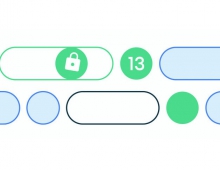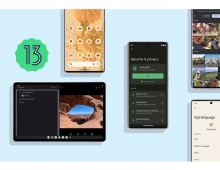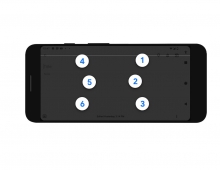
Google To Add Digital Driver License In Your Android Smartphone
Google is working to allow you to store your identification documents like drivers’ license on your Android smartphone instead in your wallet.
XDA Developers reports that Google has released the IdentityCredential API, a digital wallet for your documents. Part of a future version of Android, perhaps Android R, the API framework will allow the Android devices with the right hardware to securely store identification cards, especially digital driver’s licenses, and even access them when the device doesn’t have enough power to boot Android. Of course, the API will allow you to show your documents only after you’ve authenticated using the fingerprint scanner, password or retina scanner.
According to the report, Google's IdentityCredential API will support two types of signing keys: static and dynamic. Static authentication involves keys created by an issuing authority, whereas dynamic authentication involves keys created by the device’s security hardware.
The benefit of dynamic authentication is that its harder for an attacker to compromise the secure hardware to copy the credential to another device. Furthermore, dynamic authentication makes it harder to link a particular credential with a user’s data.
To show your digital driver’s license to an officer, you’d need to establish a wireless connection via NFC that would display the license on the oficer's smartphone. The idea is that you do the NFC tap with the officer’s phone, then unlock with fingerprint/password, then your phone goes into lockdown mode while the data is transferred over bluetooth/Wifi. Lockdown mode means that fingerprint authentication won’t unlock it, a password is required. This is specifically to force invocation of the fifth amendment protection against self-incrimination, which some courts have found does not prevent police from forcing you to unlock with biometrics, but everyone agrees prevents them from forcing you to give your password, at least in the US.
Expect something like this not earler that Android R, which is due in 2020.





















